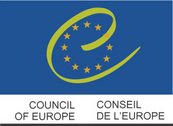The second session of the Council of Europe in 2006 was held in Strasbourg from April 10th to 13th. 11 representatives of the COE raised a motion recommendation to ask for a hearing on the case which was recently exposed to the public regarding the CCP crimes of organ-harvesting from live Falun Gong practitioners, and also demand that the Chinese government open all labour camps to international delegations to conduct independent investigations.
 |
Lately many reports about organ harvesting in communist China have been reaching Europe. It was mentioned in the motion that, according to a Reuter’s report, the United Nations’ torture investigator said that thousands of Falun Gong followers were being held in a Chinese concentration camp, and some had been killed.
It also included the following three requests:
To allow the United Nations and other rights organisations to conduct independent investigations of all its labour camps and other detention facilities where prisoners of conscience are held.
To allow international rights organisations to immediately investigate the conditions of all Falun Gong practitioners and other dissidents held in all labour camps, jails and detention centres.
To allow international organisations to investigate all non-voluntary or undocumented removals and sale of organs from the Chinese people.
It was said at the end of the motion that, “All these considerations show that there is a need for a public hearing on the organ harvesting in China.”
This motion was drafted by the Swedish Parliamentarian, Mr. Lindblad, and jointly signed by eleven parliamentarians from Germany, Switzerland, Denmark, Estonia and Greece.
Note: Founded on May 5th 1949, the Council of Europe has forty six member countries and has its headquarters in Strasbourg, France. The COE aims to defend human rights, parliamentary democracy and the rule of law, to develop continent-wide agreements to standardise member countries’ social and legal practices, and to promote awareness of a European identity based on shared values and cutting across different cultures. The highest decision-making body is the Committee of Ministers, composed of the forty six Foreign ministers or their Strasbourg-based deputies (ambassadors/permanent representatives). The European Human Rights Court is a body under the Council of Europe.
Original motion for a recommendation:
http://assembly.coe.int/Main.asp?link=/Documents/WorkingDocs/Doc06/EDOC10904.htm
* * *
You are welcome to print and circulate all articles published on Clearharmony and their content, but please quote the source.










 more ...
more ...